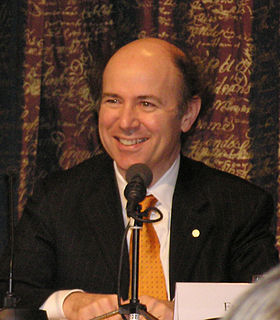A Quote by Robert Andrews Millikan
I conceive the essential task of religion to be "to develop the consciences, the ideals, and the aspirations of mankind".
Related Quotes
For most people, it is enough for the world to know that they aspire. The world does not ask what their aspirations are, trusting that those aspirations are for the best and greatest things. But with regard to the Negroes in America, there is a feeling that their aspirations in some way are not consistent with the great ideals.
But I would emphasize again that social and economic solutions, as such, will not avail to satisfy the aspirations of the people unless they conform with the traditions of our race, deeply grooved in their sentiments through a century and a half of struggle for ideals of life that are rooted in religion and fed from purely spiritual springs.
What our view of the effectiveness of religion in history does at once make evident as to its nature is--first, its necessary distinction; second, its necessary supremacy. These characters though external have been so essential to its fruitfulness, as to justify the statement that without them religion is not religion. A merged religion and a negligible or subordinate religion are no religion.
Ideals are very often formed in the effort to escape from the hard task of dealing with facts, which is the function of science and art. There is no process by which to reach an ideal. There are no tests by which to verify it. It is therefore impossible to frame a proposition about an ideal which can be proved or disproved. It follows that the use of ideals is to be strictly limited to proper cases, and that the attempt to use ideals in social discussion does not deserve serious consideration.



































